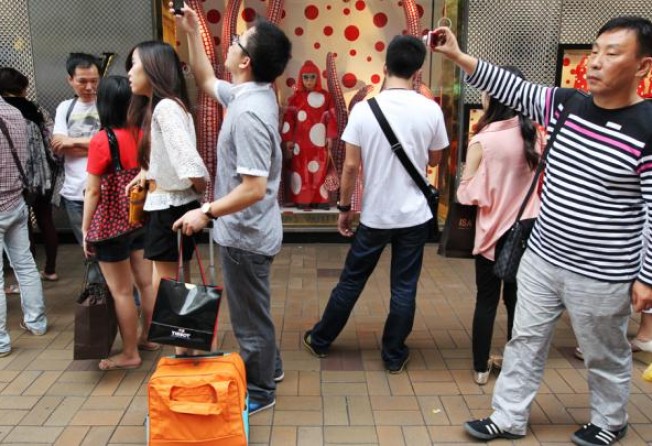Hong Kong's fear of 'mainlandisation' stems from everyday frustration
Michael Chugani says the backlash at mainlanders is the result of daily frustrations, and should not be dismissed as being churlish

Imagine that the entire US population of 314 million can suddenly reach Manhattan in an hour or so by train, ferry or bus. They start streaming in by the millions with minimum immigration controls. The visitors - with different habits and a different dialect from the locals - buy up everything, from property and iPhones to daily necessities. They overwhelm the city's transport system, shops, streets and even campsites. Some shopping districts are virtually colonised. Squeezed out of their own city, the locals fight back.
Anyone who sees the Hong Kong backlash against the flood of mainlanders in any other way is missing the point. Nearly 300 million mainlanders now qualify for easy entry to Hong Kong. The backlash you're seeing - the mocking of mainlanders as locusts, the waving of British flags, and the fury over parallel goods traders - stems not from jealousy or loathing of mainlanders. It's an overdue eruption of fear and frustration that has festered for too long.
Don't confuse a fear of "mainlandisation" with a yearning for "de-Sinofication" or colonial days. That fear came to the fore when Beijing liaison official Li Gang overshadowed Leung Chun-ying at a hospital after the ferry tragedy. Why else would Hongkongers wonder who was really in charge here?
Quality of life suffers when an overcrowded city with an overstretched infrastructure has to, with no preparation, accommodate a "floating" population of extra millions. Ordinary people suffer when mainlanders buy up almost a quarter of Hong Kong homes. Resentment builds when property tycoons give the visitors priority and when even HSBC switches to simplified characters in some branches. This all breeds frustration, which leads to anger, which then explodes at times. Anyone who can't see this or sees it as "de-Sinofication" must have a poor grasp of the public mood.
Frankly, I am surprised at how many minds are muddled. Even Leung seems to have missed the point in his National Day speech. Of course it is essential and inevitable for Hong Kong to integrate with the mainland as he stressed. Hongkongers know that. But do you integrate by sending over a flood as happened in Tibet? Or do you do it in a sustainable and orderly way?
We need to look at the big picture but also see the little things, like tripping over the trolleys of parallel goods traders who rush to cross the Lo Wu checkpoint, missing MTR trains because mainland visitors block escalators with oversized luggage, having to wait for three trains before being able to board, and the mainland unnecessarily sending salvage boats to aid in the ferry collision rescue.
None of this is a big deal on its own, but it adds up to a ticking time bomb. Every Hongkonger I've asked has expressed frustration. They shake their heads when I ask if they want "de-Sinofication". They just see their city being changed too fast to something they fear. Don't forget most Hongkongers find the mainland system totally at odds with their own core values. We can acknowledge we have a potentially explosive situation or we can fool ourselves that it's just the growing pains of integration.
Michael Chugani is a columnist and TV show host. [email protected]